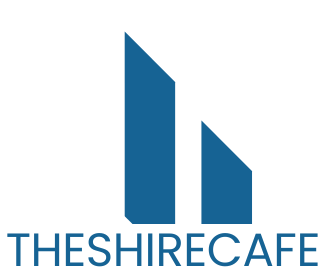Deciding whether to rent or buy a home is a pivotal choice that many face. With fluctuating markets and changing lifestyles, it’s essential to weigh the pros and cons of each option. Renting offers flexibility and lower upfront costs, while buying can build equity and provide stability.
As individuals navigate this decision, they often consider factors like financial implications, personal goals, and long-term commitments. Understanding the nuances of both renting and buying can empower them to make informed choices that align with their unique needs. In this article, we’ll explore the critical aspects of rent versus buy, helping readers determine the best path for their future.
Table of Contents
ToggleOverview of Rent vs Buy
Renting and buying each offer distinct advantages and challenges.
Renting
- Flexibility: Renting allows quick relocation, making it ideal for those with uncertain job situations or lifestyle preferences.
- Lower Initial Costs: Renters typically face lower upfront expenses, avoiding the down payment and closing costs associated with purchasing a home.
- Maintenance Responsibilities: Landlords often handle repairs and maintenance, relieving renters of additional financial burdens.
Buying
- Equity Building: Homeowners build equity over time, potentially providing a significant financial return upon selling the property.
- Stability: Owning a home offers consistent monthly payments, protecting against rising rental costs, and providing a sense of permanence.
- Customization: Homeownership grants freedom to modify and improve the property, aligning it with personal tastes and needs.
Financial Considerations
- Long-term Costs: Renting can be less cost-effective over time, while homeowners invest in a tangible asset.
- Market Trends: Housing markets fluctuate, affecting property value and potential gains from ownership. Rent prices also vary based on the local economy.
Ultimately, weighing the flexibility of renting against the long-term investment of buying involves analyzing personal circumstances, financial stability, and future plans.
Financial Considerations

Financial aspects play a crucial role in deciding between renting and buying a home. Evaluating costs and long-term investments provides clarity in making the right choice.
Cost Analysis
Renting typically involves lower upfront costs compared to buying. Renters pay monthly rent, which usually includes maintenance costs. Homebuyers incur costs such as down payments, closing fees, and ongoing expenses like property taxes and homeowner’s insurance.
| Cost Component | Renting | Buying |
|---|---|---|
| Upfront Costs | First month’s rent and deposit | Down payment and closing costs |
| Monthly Payments | Rent payments | Mortgage payments |
| Maintenance Responsibility | Landlord’s responsibility | Homeowner’s responsibility |
| Taxes | N/A | Property taxes |
Over time, rental payments can surpass mortgage payments, as both rent and property values typically increase. Homebuyers build equity through mortgage repayments, turning their monthly payments into an asset over time.
Long-Term Investment
Buying a home functions as a long-term investment. Property values often appreciate, providing potential returns when homeowners sell. Homeownership creates equity, offering financial stability and opportunities for leveraging that equity for future investments.
Renters do not benefit from appreciation and face the risk of rising rental prices, which can impact long-term affordability. Financial security often increases with property ownership, as fixed mortgage rates maintain consistent monthly payments, unlike fluctuating rents.
Lifestyle Considerations
Lifestyle plays a crucial role in the rent vs. buy decision. Factors such as flexibility and stability significantly influence individual preferences and overall satisfaction.
Flexibility of Renting
Renting offers remarkable flexibility for individuals and families. Renters can quickly relocate for job opportunities or personal reasons, as lease agreements typically span 12 months or less. This mobility suits those in dynamic job markets or uncertain financial situations. Additionally, renters avoid property maintenance responsibilities; landlords handle repairs, allowing for a carefree lifestyle. Overall, renting meets the needs of those prioritizing mobility and reduced commitment.
Stability of Buying
Buying a home provides stability that renting cannot match. Homeowners secure a long-term residence, reducing the stress of frequent relocations. Consistent monthly mortgage payments offer predictability in budgeting, fostering financial security. Homeownership also allows customization, enabling individuals to create living spaces that reflect personal tastes. With time, property values often appreciate, creating potential wealth accumulation through equity. Stability in homeownership appeals to individuals seeking permanence in their living arrangements.
Market Trends
Market trends significantly influence the decision to rent or buy. These trends reflect changes in property values, rental prices, and the overall economic landscape.
Current Real Estate Market
Current real estate market conditions indicate a competitive environment. According to the National Association of Realtors, home prices increased by 10% over the past year in many regions, making purchasing more challenging for first-time buyers. Mortgage rates also rose to around 7%, putting additional pressure on home affordability. With limited inventory, bidding wars have become common, creating an upward pressure on prices. Such conditions discourage many potential buyers, pushing them toward renting where they can bypass these costs and market fluctuations.
Rental Market Insights
Rental market insights reveal upward trends in rental prices, particularly in urban areas. In cities like San Francisco and New York, average rents climbed by 15% year over year, according to Zillow. As demand for rental properties grows, landlords increasingly raise rents to match market conditions. Additionally, the ongoing trend of remote work has led to increased interest in suburban rentals as individuals seek larger spaces. Consequently, potential renters must navigate rising costs while considering their lifestyle needs and job stability, which ultimately influences their decision to rent or buy.
Personal Circumstances
Personal circumstances play a critical role in the rent versus buy decision. Factors such as job security and family needs significantly influence this choice.
Job Security
Job security directly impacts financial stability. Individuals with stable employment options may favor buying due to predictable monthly mortgage payments and potential long-term equity. Homeownership can be advantageous for those firmly established in their careers, as it promotes financial planning and consistent budgeting. Conversely, individuals in uncertain job situations might prioritize renting, offering mobility and flexibility in case of job changes or relocation.
Family Needs
Family needs often dictate housing choices. Growing families typically seek larger living spaces and stable environments, making homeownership an appealing option for them. Owning a home provides the stability necessary for raising children, contributing to a sense of community. Renting may suit individuals with fluctuating family sizes or uncertainties, such as newlyweds, young professionals, or those who frequently relocate. These renters benefit from shorter lease commitments and the ability to choose suitable neighborhoods that align with their lifestyle needs.
Deciding between renting and buying a home requires careful consideration of personal circumstances and financial implications. Each option presents unique advantages that cater to different lifestyles and goals. Renting offers flexibility and lower upfront costs, making it suitable for those with uncertain job situations. Conversely, buying a home provides stability and the potential for equity growth, appealing to individuals seeking permanence.
As market trends continue to evolve, potential renters and buyers must stay informed about rising costs and economic conditions. Ultimately, the right choice hinges on individual needs and long-term aspirations, ensuring a decision that aligns with both current circumstances and future plans.



